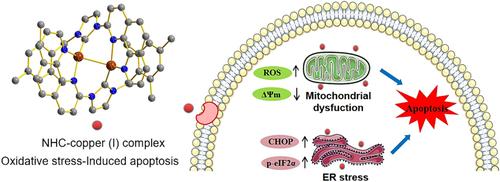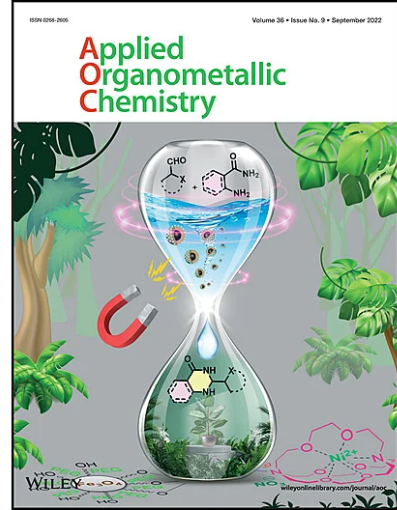Copper(I) Complexes With Phenanthroline-Functionalized NHC Ligands Achieve Effective Anticancer Activity via Mitochondrial and Endoplasmic Reticulum Stress
Abstract
Copper complexes exhibit promising anticancer properties, which can be further promoted by suitable ligands. In this study, we synthesized and investigated the anticancer effects of three copper(I) complexes with N-heterocyclic carbene (NHC) ligands derived from phenanthroline-functionalized imidazole salts. The synthesis of these NHC-copper(I) complexes (Cu1-Cu3) was meticulously characterized using NMR and elemental analysis; their crystal structures were further delineated by X-ray diffraction. Our findings illustrate the unique geometric configurations of these complexes: Cu1 features a dinuclear arrangement with off-linear geometry; Cu2 and Cu3 are characterized by a bi-copper core stabilized by two phenanthroline-modified carbene ligands. Crucially, in vitro cytotoxic evaluations revealed that these complexes possess suitability anticancer activity. Among them, Cu2 exhibited enhanced cytotoxicity activity, achieving a half-maximal inhibitory concentration (IC50) of 4.36 ± 0.25 μM in colon cancer cell line HCT-116, markedly surpassing the efficacy of cisplatin. Subsequent investigations elucidated that Cu2 notably increases intracellular reactive oxygen species (ROS) levels and induces mitochondrial membrane depolarization and endoplasmic reticulum stress, leading to oxidative stress-mediated apoptosis of colon cancer cells.


 求助内容:
求助内容: 应助结果提醒方式:
应助结果提醒方式:


